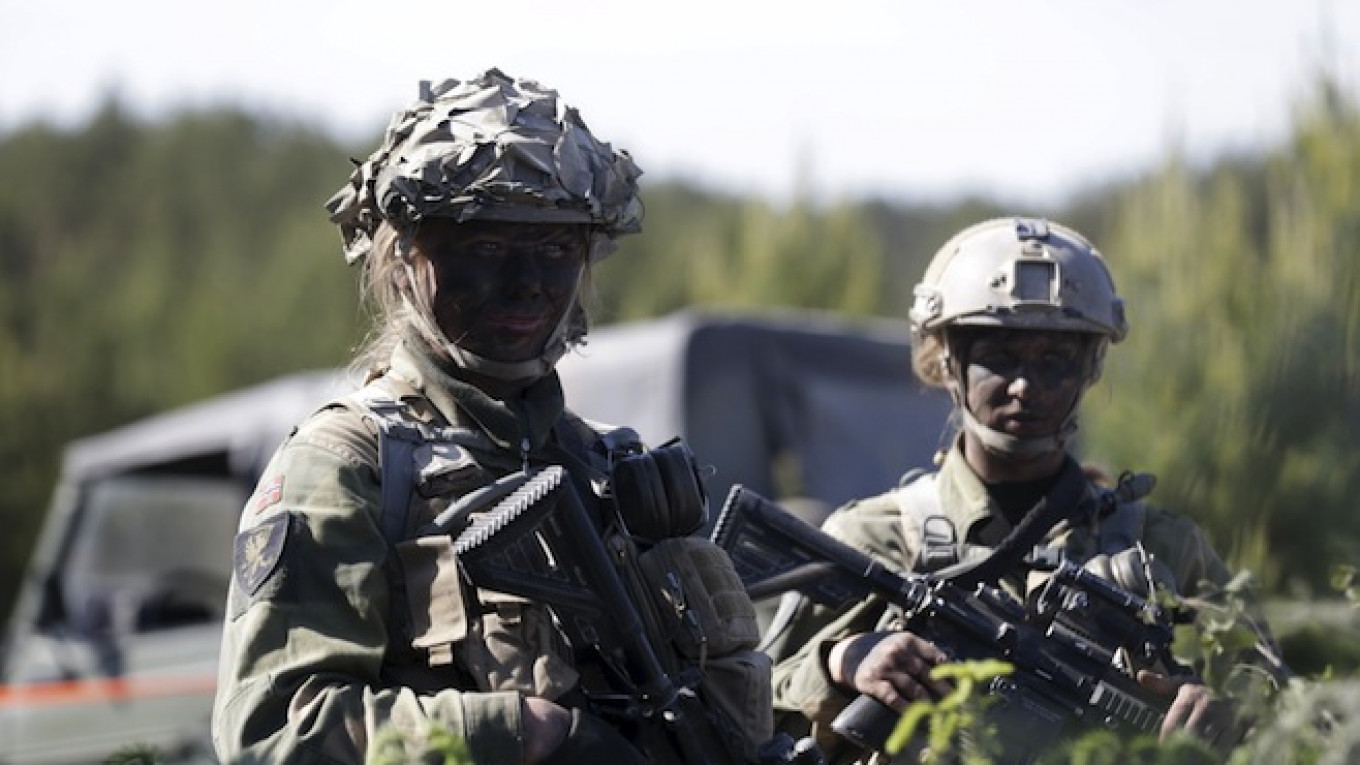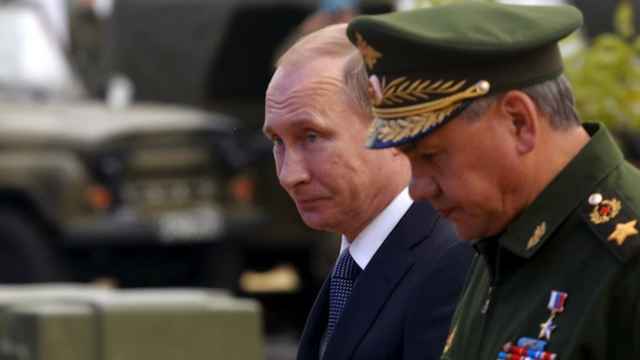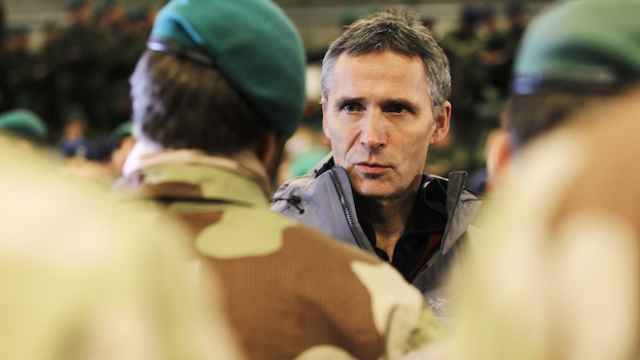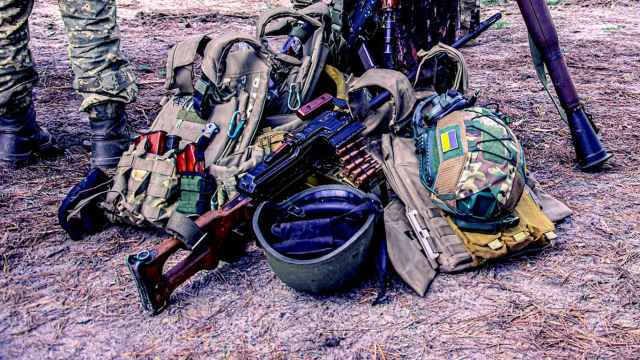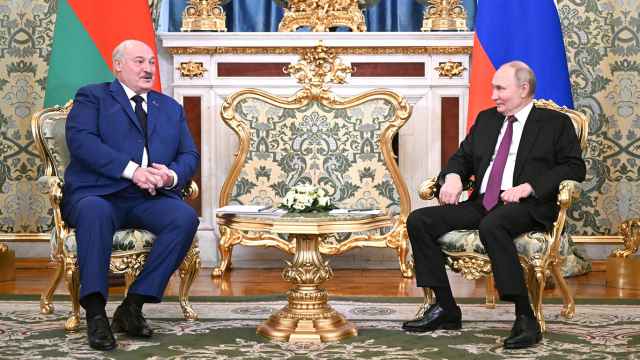Over 2,000 troops are taking part in the first exercise of NATO's new rapid response force, intended to advertise its readiness to Russia and reassure east European members spooked by the Kremlin's actions in Ukraine.
It is especially meant to show NATO's ability to counter the "hybrid warfare" seen in Ukraine — the use of shadowy tactics like the deployment of so-called "little green men," troops without clear insignia, and militias rather than regular armies.
Deafened by jetfighters, helicopters, tanks and explosions, politicians, NATO officials and journalists watched on Thursday as soldiers from nine countries showcased the abilities of the Very High Readiness Joint Task Force (VJTF).
Opening with a single sniper shot to a dummy's head, the simulated scenario allowed for an hour-long display of live firepower of the VJTF, formed in response to what NATO described as emerging security challenges posed by Russia.
Taking place between June 9-19 at in Swietoszow, western Poland, exercise "Noble Jump" is relatively small-scale and transparent in character. But it is likely to put further strain on the tense relations between Moscow and the West.
"This exercise we have witnessed today is an expression that we are delivering on the promises we made together at the last summit of NATO," the alliance's Secretary General Jens Stoltenberg told reporters on Thursday.
"There we decided to increase the readiness and preparedness of our forces, and the centrepiece of this increased readiness is the new spearhead, or the Very High Readiness Joint Task Force. This is something we need, because we are facing a new security challenge. We are adapting, and we are delivering," Stoltenberg said.
Speeding Up Response
For the exercise, the 2,100 soldiers and over 300 vehicles were deployed to Poland within four days, using six trains, 16 flights, and 14 convoys. The Germans alone brought 56 tons of ammunition.
But should a real-life threat emerge, deployment of the VJTF would require all 28 NATO members' approval, significantly slowing down the response.
A NATO official speaking to Reuters on condition of anonymity said that as well as sending a signal to Russia, the exercise was aimed at convincing political leaders of member states to streamline the decision-making process.
The issue will be addressed at a meeting of the alliance's defense ministers in Brussels next week, and NATO is hoping that the exercise might spur members into giving military commanders more authority over deployment of fast reaction forces.
German Defense Minister Ursula von der Leyen, who watched the exercise with her Polish, Dutch and Norwegian counterparts, is likely to find herself under pressure over the issue.
Germany's legal framework requires a parliamentary approval for all combat deployments of German troops abroad, a major stumbling block in deploying the new force, the NATO official said.
One possible solution would be for the German parliament to pre-authorise the supreme NATO commander to use the VJTF forces in certain circumstances.
That is likely to be supported by Poland, which has advocated a robust military response to the changing security environment on NATO's eastern and southern flanks, repeatedly calling for as permanent presence on its territory.
Asked what NATO should do to streamline the decision-making process for deploying the VJTF, Polish Defense Minister Tomasz Siemoniak said such decisions should be "in the hands of the military."
"We, politicians, must build a mechanism which will make us respond to various threats in a swift and flexible manner," Siemoniak told reporters.
Supreme Allied Commander Transformation Jean Paul Palomeros told Reuters the alliance was indeed moving to reform the decision-making process.
"The nations will obviously keep the political control, but I think there's great confidence in our ability to provide the military commanders with the authority they need to act."
Secretary General Stoltenberg told Reuters: "The point is that we need ready, prepared forces and fast decision-making to be able to respond to threats, to challenges, with little warning time."
A Message from The Moscow Times:
Dear readers,
We are facing unprecedented challenges. Russia's Prosecutor General's Office has designated The Moscow Times as an "undesirable" organization, criminalizing our work and putting our staff at risk of prosecution. This follows our earlier unjust labeling as a "foreign agent."
These actions are direct attempts to silence independent journalism in Russia. The authorities claim our work "discredits the decisions of the Russian leadership." We see things differently: we strive to provide accurate, unbiased reporting on Russia.
We, the journalists of The Moscow Times, refuse to be silenced. But to continue our work, we need your help.
Your support, no matter how small, makes a world of difference. If you can, please support us monthly starting from just $2. It's quick to set up, and every contribution makes a significant impact.
By supporting The Moscow Times, you're defending open, independent journalism in the face of repression. Thank you for standing with us.
Remind me later.


